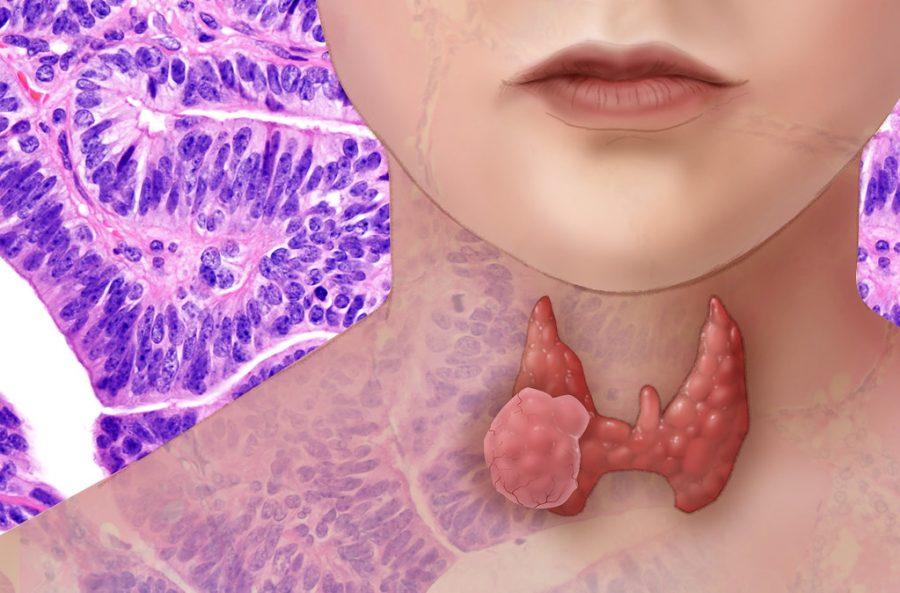What is thyroid cancer ?
While thyroid cancer is very treatable with surgery and other therapies, it remains the fastest growing cancer in the United States.
October 19, 2019
Thyroid cancer occurs in the cells of the thyroid — a butterfly-shaped gland located at the base of your neck, just below your Adam’s apple. Your thyroid produces hormones that regulate your heart rate, blood pressure, body temperature, and weight. Although thyroid cancer isn’t common in the United States, rates seem to be increasing. Doctors think this is because new technology is allowing them to find small thyroid cancers that may not have been found in the past. Most cases of thyroid cancer can be cured with treatment.
Causes
Thyroid cancer occurs when cells in your thyroid undergo genetic changes (mutations). The mutations allow the cells to grow and multiply rapidly. The cells also lose the ability to die, as normal cells would. The accumulating abnormal thyroid cells form a tumor. The abnormal cells can invade nearby tissue and can spread throughout the body.
Symptoms
Thyroid cancer typically doesn’t cause any signs or symptoms early in the disease. As thyroid cancer grows, it may cause:
- A lump that can be felt through the skin on your neck
- Changes to your voice, including increasing hoarseness
- Difficulty swallowing
- Pain in your neck and throat
- Swollen lymph nodes in your neck
Risk Factors
Factors that may increase the risk of thyroid cancer include:
- Female sex. Thyroid cancer occurs more often in women than in men.
- Exposure to high levels of radiation. Examples of exposure to high levels of radiation include radiation treatments to the head and neck and fallout from sources such as nuclear power plant accidents or weapons testing.
- Certain inherited genetic syndromes. Genetic syndromes that increase the risk of thyroid cancer include familial medullary thyroid cancer and multiple endocrine neoplasias.
Prevention for people with a high risk
Adults and children with an inherited gene mutation that increases the risk of medullary thyroid cancer are often advised to have thyroid surgery to prevent cancer (prophylactic thyroidectomy). Discuss your options with a genetic counselor who can explain your risk of thyroid cancer and your treatment options.
Source: Google
Featured image: Flickr
Picture Credit: Google


